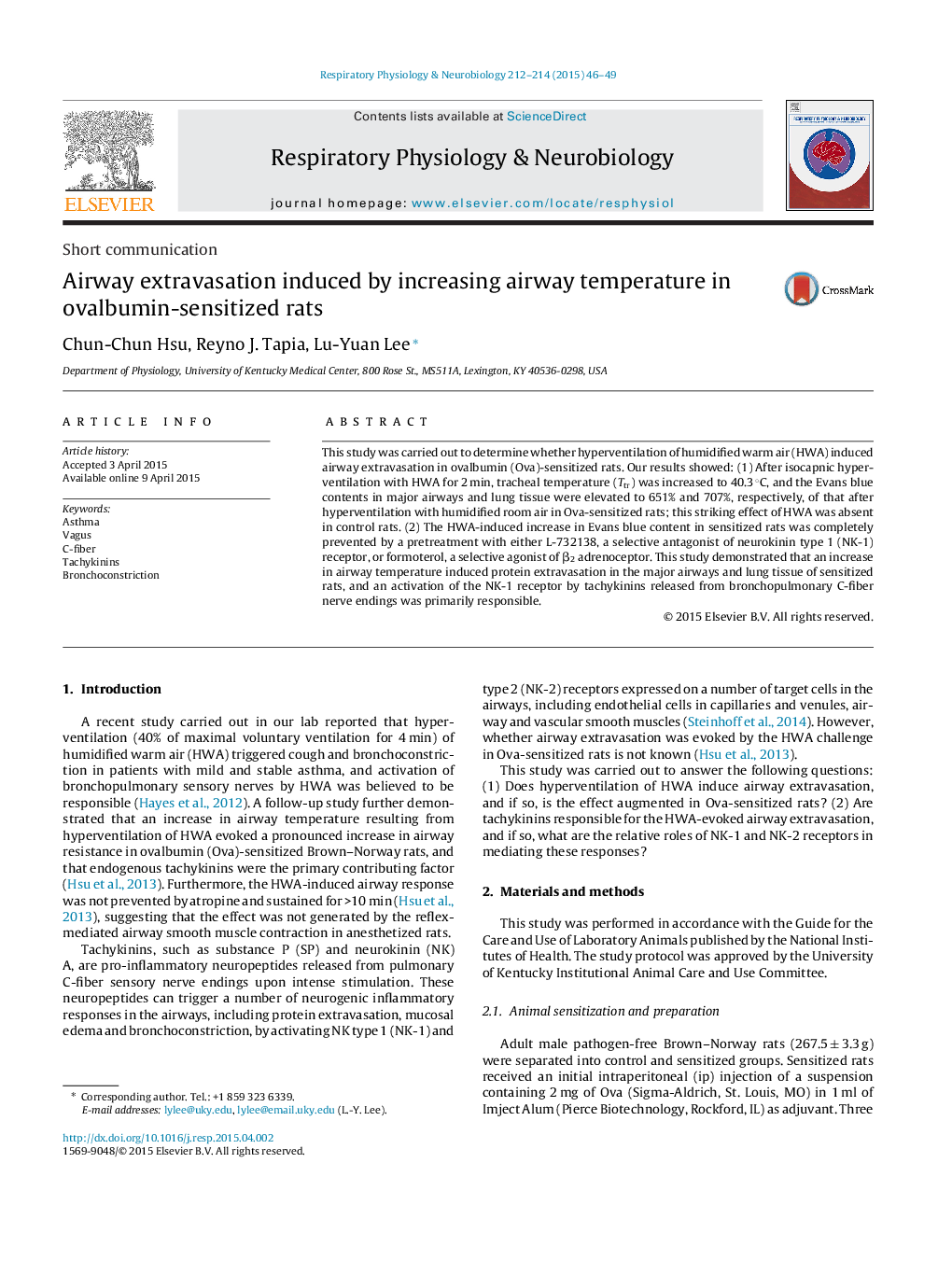| Article ID | Journal | Published Year | Pages | File Type |
|---|---|---|---|---|
| 2846803 | Respiratory Physiology & Neurobiology | 2015 | 4 Pages |
•An increase in airway temperature induced protein extravasation in sensitized rats.•The airway extravasation was caused by the action of endogenous tachykinins (TKs).•TKs were released from airway sensory nerves resulting from increasing temperature.
This study was carried out to determine whether hyperventilation of humidified warm air (HWA) induced airway extravasation in ovalbumin (Ova)-sensitized rats. Our results showed: (1) After isocapnic hyperventilation with HWA for 2 min, tracheal temperature (Ttr) was increased to 40.3 °C, and the Evans blue contents in major airways and lung tissue were elevated to 651% and 707%, respectively, of that after hyperventilation with humidified room air in Ova-sensitized rats; this striking effect of HWA was absent in control rats. (2) The HWA-induced increase in Evans blue content in sensitized rats was completely prevented by a pretreatment with either L-732138, a selective antagonist of neurokinin type 1 (NK-1) receptor, or formoterol, a selective agonist of β2 adrenoceptor. This study demonstrated that an increase in airway temperature induced protein extravasation in the major airways and lung tissue of sensitized rats, and an activation of the NK-1 receptor by tachykinins released from bronchopulmonary C-fiber nerve endings was primarily responsible.
